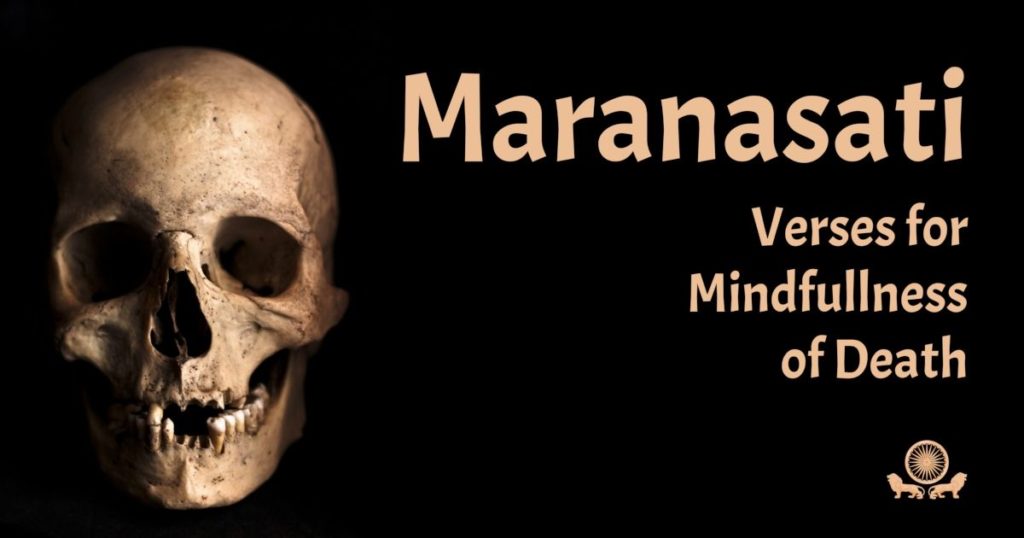
These are traditional verses that can be recited as a meditation.
1. Pavāta dīpa tulyāya – sāyu santatiyākkhayaṁ
Parūpamāya samphassaṁ – bhāvaye maraṇassatiṁ
Life passes towards its end like the flame of a lamp goes out by the wind. Seeing how others die applying it to one’s own life, one should develop mindfullness of death.
2. Mahāsampatti sampattā – yathā sattā matā idha
Tathā ahaṁ marissāmi – maraṇaṁ mama hessati
Just as beings that once enjoyed great prosperity are now dead, even so one day I too will die. Death will indeed come to me.
3. Uppattiyā saheveḍaṁ – maraṇaṁ āgataṁ sadā
Māraṇatthāya okāsaṁ – vadhako viya esati
Death has followed each and every birth. Therefore, like an executioner, death always seeks an opportunity to destroy my life.
4. Īsakaṁ anivattaṁ taṁ – satataṁ gamanussukaṁ
Jīvitaṁ udayā atthaṁ – suriyo viya dhāvati
Life, without stopping a moment, ever keen on moving, runs on towards death like the sun that travels to set without stopping after it rises.
5. Vijju bubbula ussāva – jalarāji parikkhayaṁ
Ghātako’va ripūtassa – sabbatthā’pi avāriyo
This life comes to an end like a streak of lightning, a bubble of water, a dew drop on a leaf, or a line drawn on water. Like an enemy, death chases after one constantly. Death can never be avoided by any means.
6. Suyasatthāma puññiddhi – buddhi vuddhe jinaddvyaṁ
Ghātesi maraṇaṁ khippaṁ – kā tu mādisake kathā
If death could come in an instant, even to Supreme Buddhas, private Buddhas, and arahants endowed with great glory, prowess, merit, supernormal powers and wisdom, what could be said of me?
7. Paccayāna’ñca vekalyā – bāhirajjhattu paddavā
Marāmoraṁ nimesā’pi – maramāno anukkhaṇa’nti.
Due to the change of supporting factors, constant injuries arising internally and externally the life heads towards death changing every instant. Death will come one in the twinkling of an eye.
Etena saccena suvatthi hotu!
By this truth, may there be well-being!
Get the whole book!
Translation from The Mahamevnawa Pali English Paritta Chanting Book.
